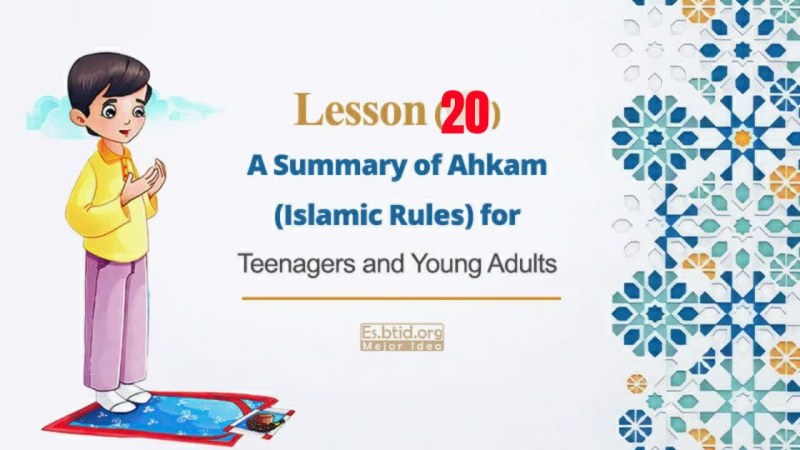- Ahkam: It is a set of rules and guidelines that a Muslim must act within. Like the branches of religion (prayer, fasting, zakat, khums, hajj, jihad, enjoining the good, forbidding the evil, Tawalli, Tabarri).

Ahkam (Islamic Rules) for the Teenagers (Lesson 20)
Ahkam Explaination:
Click to Previous Part
The method of reading Sajdah Suhhu:
After finishing the prayer, we go to Sajdah/prostration without talking and without saying the takbeer al-Ihram and say, according to the recommended precaution, "Bismillah wa Billah, Allahuma Sali A’ala Mohammad wa A’ale Mohammad."[1]
Then we return and prostrate again and say the same zikr. Then we say tashahhud and salam.
Prayer of the Passenger:
When traveling, a person should pray two rak'at, the four rak'at prayers (It is called Broken Prayer). He should not Fast as well. His journey must not be less than eight farsakhs/about 45 kilometers. And he does not stay there for more than ten days.
* If a traveler goes 4 farsakhs from a place where he has finished his prayer, like his homeland, and returns 4 farsakhs, his prayer is also broken during this journey and he should not fast.
In places where full prayer is read and fasting is observed:
1 Before he goes eight farsakhs, he passes through his homeland or stays somewhere for ten days.
2 From the beginning, he did not intend to go on a journey of eight farsakhs. like someone who is looking for a lost thing or person.
3 In the middle of the way, he should turn back from his intention to travel, that is, he should stop going before reaching four farsakhs.
4 A person whose job is traveling, such as drivers, pilots, etc., of course, on a trip that is his job.
5 A person who goes on a forbidden journey. like a journey that causes trouble to his father and mother.
In these places, prayer is complete and fasting is required:
1 In the homeland / the place where a person has chosen for his living and permanent residence.
2 where he wants to stay for ten days.
3. In a place where he has stays in doubt for thirty days. That is, it is not known whether he will stay or leave, and he has not gone anywhere for thirty days. In this case, he should complete his prayers after thirty days.[2]



